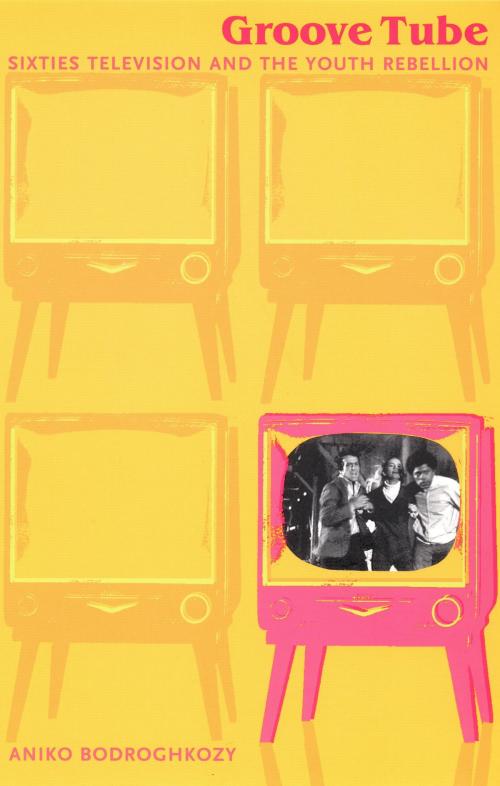Groove Tube
Sixties Television and the Youth Rebellion
Nonfiction, Entertainment, Performing Arts, Television, History & Criticism, Social & Cultural Studies, Social Science, Cultural Studies, Popular Culture| Author: | Aniko Bodroghkozy, Lynn Spigel | ISBN: | 9780822380085 |
| Publisher: | Duke University Press | Publication: | February 8, 2001 |
| Imprint: | Duke University Press Books | Language: | English |
| Author: | Aniko Bodroghkozy, Lynn Spigel |
| ISBN: | 9780822380085 |
| Publisher: | Duke University Press |
| Publication: | February 8, 2001 |
| Imprint: | Duke University Press Books |
| Language: | English |
Critics often claim that prime-time television seemed immune—or even willfully blind—to the landmark upheavals rocking American society during the 1960s. Groove Tube is Aniko Bodroghkozy’s rebuttal of this claim. Filled with entertaining and enlightening discussions of popular shows of the time—such as *The Monkees, The Smothers Brothers Comedy Hour, The Mod Squad—*this book challenges the assumption that TV programming failed to consider or engage with the decade’s youth-lead societal changes.
Bodroghkozy argues that, in order to woo an increasingly lucrative baby boomer audience, television had to appeal to the social and political values of a generation of young people who were enmeshed in the hippie counterculture, the antiwar movement, campus protests, urban guerilla action—in general, a culture of rebellion. She takes a close look at the compromises and negotiations that were involved in determining TV content, as well as the ideological difficulties producers and networks faced in attempting to appeal to a youthful cohort so disaffected from dominant institutions. While programs that featured narratives about hippies, draft resisters, or revolutionaries are examined under this lens, Groove Tube doesn’t stop there: it also examines how the nation’s rebellious youth responded to these representations. Bodroghkozy explains how, as members of the first “TV generation,” some made sense of their societal disaffection in part through their childhood experience with this powerful new medium.
Groove Tube will interest sociologists, American historians, students and scholars of television and media studies, and others who want to know more about the 1960s.
Critics often claim that prime-time television seemed immune—or even willfully blind—to the landmark upheavals rocking American society during the 1960s. Groove Tube is Aniko Bodroghkozy’s rebuttal of this claim. Filled with entertaining and enlightening discussions of popular shows of the time—such as *The Monkees, The Smothers Brothers Comedy Hour, The Mod Squad—*this book challenges the assumption that TV programming failed to consider or engage with the decade’s youth-lead societal changes.
Bodroghkozy argues that, in order to woo an increasingly lucrative baby boomer audience, television had to appeal to the social and political values of a generation of young people who were enmeshed in the hippie counterculture, the antiwar movement, campus protests, urban guerilla action—in general, a culture of rebellion. She takes a close look at the compromises and negotiations that were involved in determining TV content, as well as the ideological difficulties producers and networks faced in attempting to appeal to a youthful cohort so disaffected from dominant institutions. While programs that featured narratives about hippies, draft resisters, or revolutionaries are examined under this lens, Groove Tube doesn’t stop there: it also examines how the nation’s rebellious youth responded to these representations. Bodroghkozy explains how, as members of the first “TV generation,” some made sense of their societal disaffection in part through their childhood experience with this powerful new medium.
Groove Tube will interest sociologists, American historians, students and scholars of television and media studies, and others who want to know more about the 1960s.















